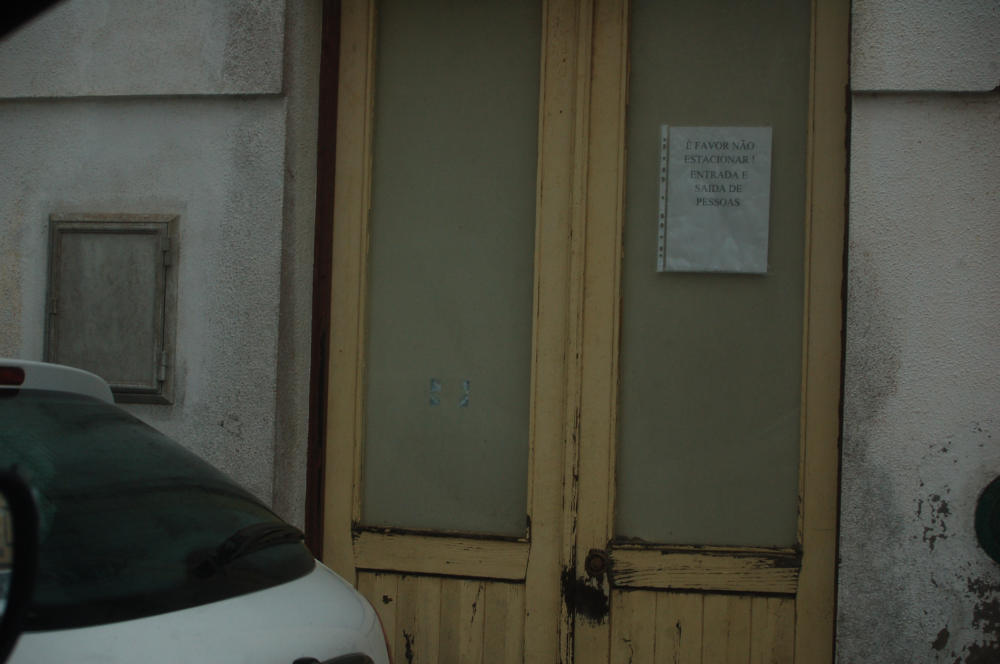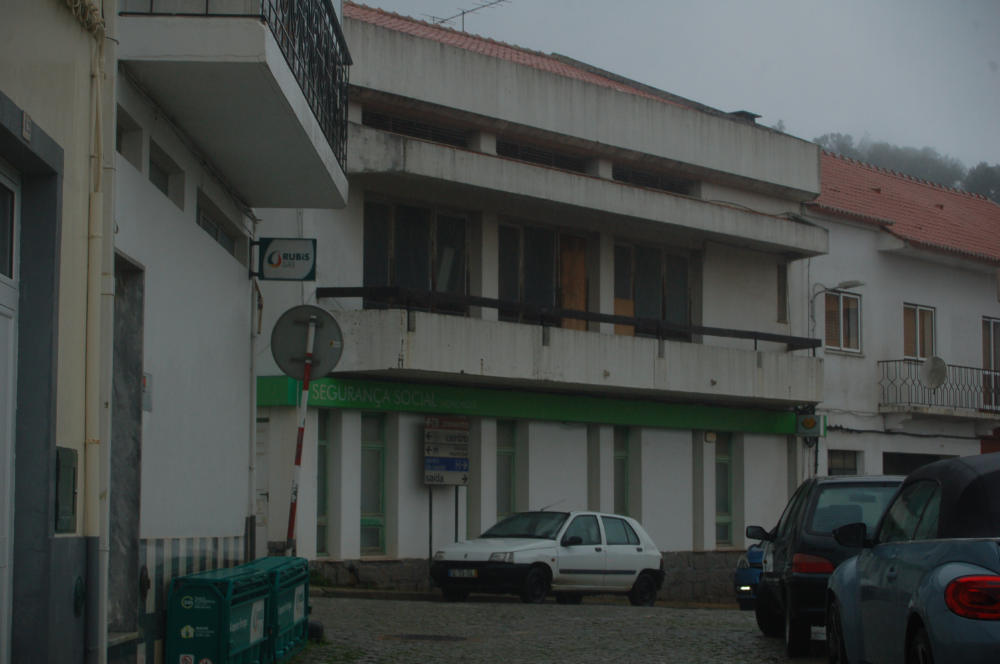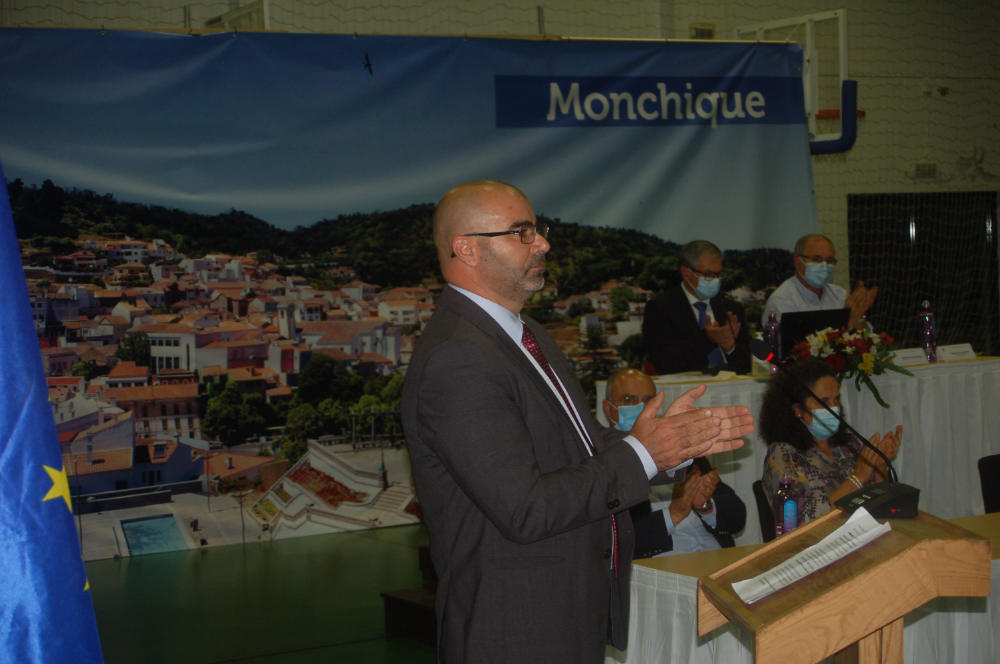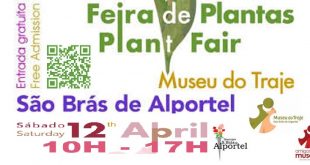Saturday 20th January 2023.
Monchique, Portugal. According to the latest most recent census of 2021 there are still 5,462 residents living here. We’ve seen better times, when Monchique still boasted 14,779 residents. That was in 1960. At the time everybody was in work, meaningful, worthwhile work. This dictatorship thing wasn’t great, true, but at least you had your stock of medronho at home. Right? Exercising his profession, a shoemaker would earn what he needed to live. A farmer had his shoes made to measure at home by travelling shoemakers from Monchique. Monchique provided the potatoes, the bacon and the sweetcorn of the Algarve. The peasants‘ clothes were ordered from the tailor‘s. Come to think of it, there were also a number of day labourers and no social security. Then the Carnation Revolution happened. Soon after, things went downhill. Now, 50 years down the line, according to well-informed City Hall sources, in 2024, the entire Monchique municipality has not even 5,000 residents anymore and not a single shoemaker. Why is that so? Where did all the people go? When will Monchique shut down?
Here in Monchique, we are now living in a democracy and can give voice to what we think. We can deal with constructive criticism. Just sometimes, when an African wind blows in from the southeast, we have our difficulties once this wind reaches our head. That makes us really ill. All of a sudden we find ourselves unable to deal with the concept of freedom of opinion. This is when democratic resolutions of a city hall are no longer worth the paper they’re printed on. It’s also when the former banking executive and current mayor of Monchique, the Socialist Paulo Alves, develops serious problems with constructive criticism. He cannot understand really why this particular journalist would want to write about a young shoemaker by the name of Zé Pedro Mira, who no longer wants to live and work in Monchique, preferring to work and live on an island called Tenerife. When Monchique is so nice, isn’t it?
Is it really? In 2016, the Monchique city council decided to award the young shoemaker Zé Pedro Mira a start-up grant worth 10,000 euro if he was to open up his workshop back home after obtaining his qualification abroad. At the time, this decision was taken unanimously (with 5 votes) by both the PSD and PS parties. The craft should be given a chance to live on. Monchique is now democratic, and Portugal part of the EU. We have a social security system. And the written notes from a city council session don’t simply disappear. This is about jobs, but not only about jobs, this is about the economy of a district that is slowly dying off. This is about the credibility of politics. For the biggest employer is the City Hall itself. And then you have a lot of ‘freelance’ workers as they say, wielding motor saws and earning their living in the eucalyptus monocultures. Knocking down trees. Tough work. There is also a quarry, employing however much fewer people than work at City Hall. Where in Monchique do you actually find serious work?
Where in Monchique can you find an attractive apprenticeship apart from to become a butcher? Where can you watch a film or a theatre performance in your free time, something you can do in São Brás de Alportel for instance? Take the former Casa do Povo, once a place celebrating culture, located above the Social Security office in Monchique – rain is seeping into the building, well beyond the stage of bailing out with buckets. The building needs a new roof, new windows, new doors, new flooring, etc. The list is too long to fit into words here. There are of course the forest fires too. Ah well, let bygones be bygones, Monchique is so beautiful, isn’t it?
Is that it? The other day a foreign guesthouse owner sold his house and plot of land in Monchique and moved to Lagos. There is less risk there. In Lagos he once again bought a plot of land with a house and reopened the guesthouse. Sustainability! As long as Monchique keeps ignoring the sign of the times, no new investors feel they can invest their money safely in the mountains. We’ve had devastating forest fires in 1991, 2003, 2004, 2016 and 2018. Eucalyptus burns well. Summer is coming, the people are scared. Young people leave to study and don’t come back, or are working abroad somewhere, longing for home.
Emigration has a long history. A good ten million people still live in Portugal. Yet another ten million are already living in France, Switzerland, Luxembourg, England, the US, Canada, Australia, in Spain and in Germany. The list could be extended. Something is going seriously wrong in Monchique, in Portugal.
Visiting one of the ones who stayed behind: today, with the southeasterly blowing, I went to Monchique City Hall, wanting to set up a chat with Paulo Alves, to invite him for an interview. I’d like him to tell us what kind of politics he represents. He was in a meeting. I also tried to call him, and sent him a text message too. I’ll get back to you as soon as I can. By the end close of this edition, that hasn’t happened. This is Monchique. This is Portugal. My invitation stands: to take a stand right here, to explain what‘s going on.
Monchique, Portugal: a municipality that due to the incompetence and nepotism of its reigning politicians across the party-political landscape, is slowly dying out. A municipality that its young people are fleeing in droves, and which has to be sustained year on year by central government to the tune of many millions, to be able to even pay its employees at City Hall. Viewed from a Lisbon perspective, a municipality that could in theory be shut down and joined with the neighbouring Portimão municipality. This would save at least 250 jobs in what is still the Cậmara Municipal de Monchique. At Monchique City Hall hardly anyone can envisage such a thing. Monchique would be downgraded to a mere local authority, part of Portimão. For Monchique residents at least the advantage would be that everybody would have a family medic in the health centre of the old hospital …
 Eco123 Revista da Economia e Ecologia
Eco123 Revista da Economia e Ecologia





